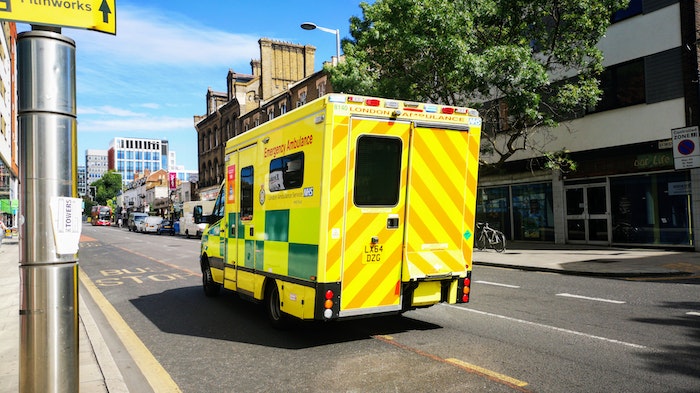Ultiva is a brand name for the drug remifentanil, which is a powerful opioid pain medication.
It is used for short-term pain relief, particularly during surgical procedures, and is administered through an IV (intravenous) line.
Ultiva works by binding to receptors in the brain and nervous system, which reduces the sensation of pain and can also produce a feeling of relaxation or euphoria.
However, because of its potency, Ultiva can also cause serious side effects, including respiratory depression and decreased blood pressure, and requires careful monitoring by healthcare professionals.

Ultiva affects the brain and body by binding to specific receptors called opioid receptors. These receptors are found throughout the central nervous system and are involved in the modulation of pain, as well as other physiological functions such as mood, respiration, and blood pressure.
When Ultiva binds to opioid receptors, it can cause a range of effects, including pain relief, sedation, and euphoria.
Ultiva is a potent opioid, which means that it can produce these effects at very low doses. However, it also means that it can produce serious side effects, such as respiratory depression when used inappropriately or in high doses.
In addition to its effects on the brain, Ultiva can also affect the body in several ways. It can cause a decrease in blood pressure, which can be beneficial during surgical procedures, as it can reduce bleeding.
However, it can also cause dangerous drops in blood pressure if not carefully monitored. Ultiva can also decrease respiratory rate and cause muscle rigidity, which can make it more difficult to breathe. (1)

The amount of Ultiva that can lead to an overdose can vary depending on several factors, including a person’s individual tolerance, the mode of administration, and the presence of other substances in the body.
However, because Ultiva is a potent opioid, even a small amount can be dangerous, especially if used improperly or without proper medical supervision.
The recommended dosage of Ultiva for pain management during surgical procedures is typically determined based on a person’s weight, age, and medical history, and is carefully monitored by healthcare professionals.
However, if someone takes too much Ultiva, it can lead to a range of symptoms, including respiratory depression, decreased heart rate, low blood pressure, and even coma or death. (2)
It is important to note that using Ultiva recreationally or without a prescription is extremely dangerous and can be fatal.
If you or someone you know is experiencing symptoms of an overdose, such as difficulty breathing, confusion, or loss of consciousness, seek immediate medical attention by calling emergency services or going to the nearest emergency room

An Ultiva overdose can be life-threatening and requires immediate medical attention. The signs and symptoms of an Ultiva overdose may include:
If you or someone you know is experiencing any of these symptoms after taking Ultiva, seek medical attention immediately by calling emergency services or going to the nearest emergency room.
The effects of an Ultiva overdose can be fatal, so it’s super important to get medical attention right away.

The treatment for an Ultiva overdose typically involves supportive care and monitoring in a hospital setting. If someone is showing signs of an overdose, it is important to seek medical attention immediately by calling emergency services or going to the nearest emergency room.
In the hospital, healthcare professionals may use several interventions to treat an Ultiva overdose, including:
Overall, the treatment for an Ultiva overdose requires prompt medical attention and careful monitoring by healthcare professionals. It is important to note that an Ultiva overdose can be life-threatening and seeking medical help as soon as possible can increase the chances of a successful recovery.

The amount of time that Ultiva stays in the system can vary depending on several factors, including the person’s metabolism, age, weight, and other health conditions.
Generally, Ultiva has a short half-life of about 3 to 10 minutes, which means that it is rapidly metabolized and eliminated from the body. (5)
However, even though Ultiva has a short half-life, its effects can last for several hours after administration. This is because Ultiva is highly potent, and even small amounts can produce significant effects on the brain and body.
After Ultiva is metabolized and eliminated from the body, it is excreted primarily through the urine. The metabolites of Ultiva can be detected in urine for up to 24 hours after administration, depending on the sensitivity of the drug test used.
It is important to note that because Ultiva is a controlled substance, it can be detected in drug tests and may have legal implications if used improperly or without a prescription.
If you have concerns about Ultiva or its effects on your body or system, speak with your healthcare provider or a qualified medical professional for more information.

Mixing Ultiva with alcohol is not recommended and can be dangerous. Both Ultiva and alcohol are central nervous system depressants, which means that they can slow down the activity of the brain and body.
When taken together, the effects of Ultiva and alcohol can be intensified, which can lead to a range of negative effects, including respiratory depression, decreased heart rate, low blood pressure, and even coma or death.
Additionally, mixing Ultiva and alcohol can also increase the risk of other adverse effects, such as dizziness, drowsiness, confusion, and impaired judgment or coordination.
These effects can be particularly dangerous if a person is driving or operating heavy machinery.
It is important to follow the instructions of your healthcare provider regarding the use of Ultiva, including any instructions regarding the use of alcohol or other substances.
If you have concerns or questions about the use of Ultiva or alcohol, speak with your healthcare provider or a qualified medical professional for more information.
If you are worried about your drug use, or you fear that someone else may have developed a drug or alcohol addiction, you can call us today on 0800 140 4690.
Our team of dedicated addiction experts are available 24/7 to help you with any concerns related to addiction and recovery.
[1] British Journal of Anaesthesia – Effects of remifentanil on brain responses to noxious stimuli during deep propofol sedation – https://www.bjanaesthesia.org/article/S0007-0912(22)00369-5/fulltext
[2] National Library of Medicine – Respiratory arrest in an obstetric patient using remifentanil patient-controlled analgesia – https://pubmed.ncbi.nlm.nih.gov/22268797/
[3] Lancaster General Health – Remifentanil – https://www.lancastergeneralhealth.org/healthwise-library/healthwise-article?documentId=d04034a1
[4] National Library of Medicine – Naloxone dosage for opioid reversal: current evidence and clinical implications – https://www.ncbi.nlm.nih.gov/pmc/articles/PMC5753997/
[5] Electronic Medicines Compendium – Remifentanil 2 mg powder for concentrate for solution for injection/infusion – https://www.medicines.org.uk/emc/product/795/smpc#gref